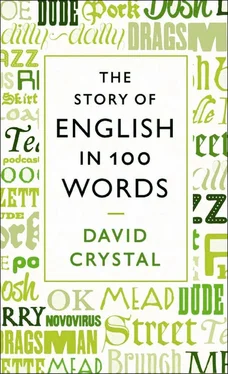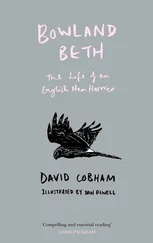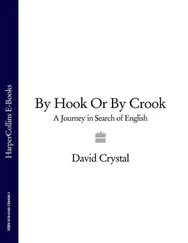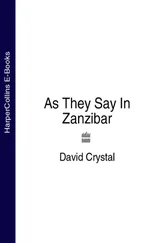 33. Taffeta — an early trade word (14th century)
33. Taffeta — an early trade word (14th century)
On 14 July 1724 a fleet of cargo ships arrived in England after the long journey from the East Indies, carrying goods on behalf of the United Company of Merchants. The cargo lists showed 1846 addaties , 1279 alliballies and 1997 baftaes , and the rest of the cargo included various numbers of carridarries, chillaes, cushtaes, doofooties, emerties, ginghams, lacowries, nillaes, romals and taffeties .
How many of these words do you know? Most people recognise ginghams , and might be able to identify some of the others if they really know the history of fabrics. But for most of us, the terms have no reality other than to provide ammunition for word-guessing games such as Fictionary or Call My Bluff . In fact they are all types of cotton, linen or silk, with names reflecting local Indian usage, or sometimes the town of origin (as with cushtaes , from Kushtia in Bangladesh). A few names refer to types of product, such as romals , which were silk or cotton squares or handkerchiefs.
We tend to underestimate the importance of words like these in the history of English vocabulary because they are so specialised. Few of them ever get into general dictionaries. But, for a language like English, in a country like Britain, tens of thousands of words have entered the language as a result of global trade. Many of them, such as calico, chintz and khaki , retain a distinctive spelling reflecting their exotic origins.
Taffeta is first recorded in 1373. It appears in the list above as taffetie — one of many recorded spellings of the word before it settled down in its modern form. Its meaning has varied over the centuries, referring to various kinds of fabric, but its primary application has been to silk of a rich and lustrous quality. This led to taffeta being extended to non-fabric situations. Anything ornate or florid might be described in this way. Shakespeare has one of his characters, Berowne in Love’s Labour’s Lost (V.ii.406), say how he will never woo a lady in artificial ‘silken terms’. He calls them ‘taffeta phrases’.
Taffeta is ultimately from Persian, a language we don’t normally think of as a source for English vocabulary; but over the years, either directly or indirectly, it has supplied English with a surprising number of words ( §48). You are entering an originally Persian linguistic world if you ever find yourself sitting on a divan in a caravan , wearing a scarlet or lilac shawl , eating couscous , having been checkmated by a rook in chess and watching ‘The Day of the Jackal ’. The shawl would have to be taffeta, of course.
 34. Information(s) — (un)countable nouns (14th century)
34. Information(s) — (un)countable nouns (14th century)
It’s one of the commonest errors heard when people are learning English as a foreign language. They say such things as ‘I want to buy some furnitures’, ‘I’d like some advices’ and ‘Do you have any informations about that?’ Or they use the singular form, and talk about a furniture , an advice , an information .
Teachers know why such things happen. It’s often interference from the student’s mother tongue. In French, for example, information is used as a plural when it means ‘news’, so French learners assume the same thing happens in English. Teachers sort it out by getting learners to say a piece of information , and suchlike. And they draw attention to the important distinction between nouns that are countable in English (such as eggs , chairs and elephants ) and those that aren’t — uncountable nouns such as information .
However, we mustn’t fall into the trap of thinking that words like these can never vary. In fact, when information arrived in English from French in the 14th century, it was also used as a countable noun, with the meaning of ‘a charge’ or ‘accusation’. Someone might make informations about you. And in law, this countable usage remains today in various technical senses.
It was used as a countable noun in everyday English too, in the sense of ‘a piece of advice’ or ‘a piece of news’. Chaucer talks about wise informations and teachings . Coverdale’s Bible has informations and documents of wisdom . And usages such as reliable informations and latest informations can be found in print written by native speakers right up to the present day. At the same time as all this was going on, of course, information was developing its uncountable use, which is the most common use today in this information age .
The message is plain. Words can be countable or uncountable depending on the sense we have in mind when we use them. Before the 20th century, tea and coffee were uncountable, apart from in specialist settings where types of tea or coffee were being identified. But in recent times we have seen the development from ‘Would you like tea/coffee?’ to ‘Would you like a cup of tea/coffee?’ to ‘Would you like a tea/coffee?’ and such usages as ‘Two teas/coffees, please’. We also say ‘I like tea/coffee’ and ‘Would you like some tea/coffee’. These words have two uses today.
Many words switch in this way. We eat cake and a cake. We play piano and a piano . We hear noise and a noise . We turn on a light to let some light in. The process works the other way round too. Countable nouns can become uncountable. I can imagine a children’s story about a family of moths discussing what they’re going to have for lunch today. ‘I’m eating coat’, says one. ‘I tried some coat yesterday, and it wasn’t very nice’, says another, ‘I prefer hat, personally’. Well, why not?
 35. Gaggle — a collective noun (15th century)
35. Gaggle — a collective noun (15th century)
I think it went something like this. A group of monks, wondering how to pass the time on a cold, dark winter’s evening in the 15th century, invent a word game. ‘Let’s think up words for groups of things’, says one. ‘What do we call a group of cows?’ ‘A herd.’ ‘A group of bees?’ ‘A swarm.’ ‘A group of geese?’ ‘A flock.’ Words like herd and swarm had been in the language since Anglo-Saxon times. There weren’t many of them, and the few that were available had been used for all kinds of things. People talked about a herd of cranes, wrens, deer, swans, gnats and more. The game must have palled after a while.
Then someone had a bright idea. ‘Let’s think up better words. What would be a really clever way of talking about geese?’ ‘A cackle of geese, maybe?’ ‘Not bad, but that better suits hens. What about gaggle ? It goes better with goose because of the g ’s? What do you all think?’ ‘Agreed? Write it down, Brother John.’
And Brother John did. Or maybe it was Dame Juliana. She was the prioress of Sopwell nunnery, near St Albans in Hertfordshire, and her name appears in a collection of material on hunting, heraldry and folklore that was printed in 1486, called The Book of St Albans . It’s one of the first English printed books, and it contains a list of some 200 collective nouns. Several are traditional expressions, such as herd . But many seem to be inventions. This is where we find a muster of peacocks, an unkindness of ravens, a watch of nightingales, a charm of goldfinches and dozens more. But the list goes well beyond animals. We find a diligence of messengers, a superfluity of nuns, a doctrine of doctors, a sentence of judges, a prudence of vicars and a non-patience of wives . And people tried out fresh combinations. ‘A gaggle of geese?’ ‘What about a gaggle of women?’ ‘Write that down, Brother John.’ He did. A gaggle of women is recorded in a book written around 1470. An early sexist joke.
Читать дальше

 33. Taffeta — an early trade word (14th century)
33. Taffeta — an early trade word (14th century) 34. Information(s) — (un)countable nouns (14th century)
34. Information(s) — (un)countable nouns (14th century) 35. Gaggle — a collective noun (15th century)
35. Gaggle — a collective noun (15th century)










